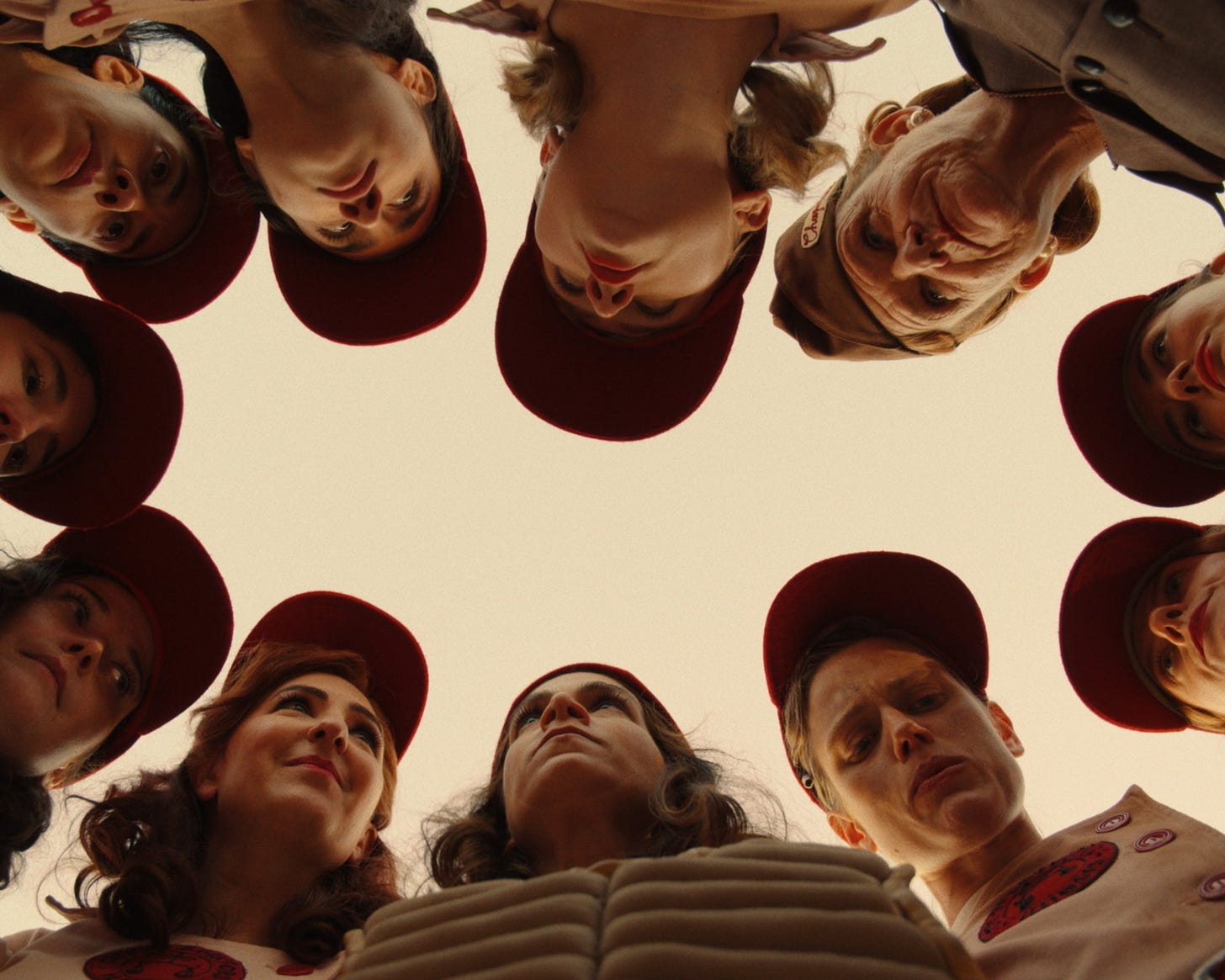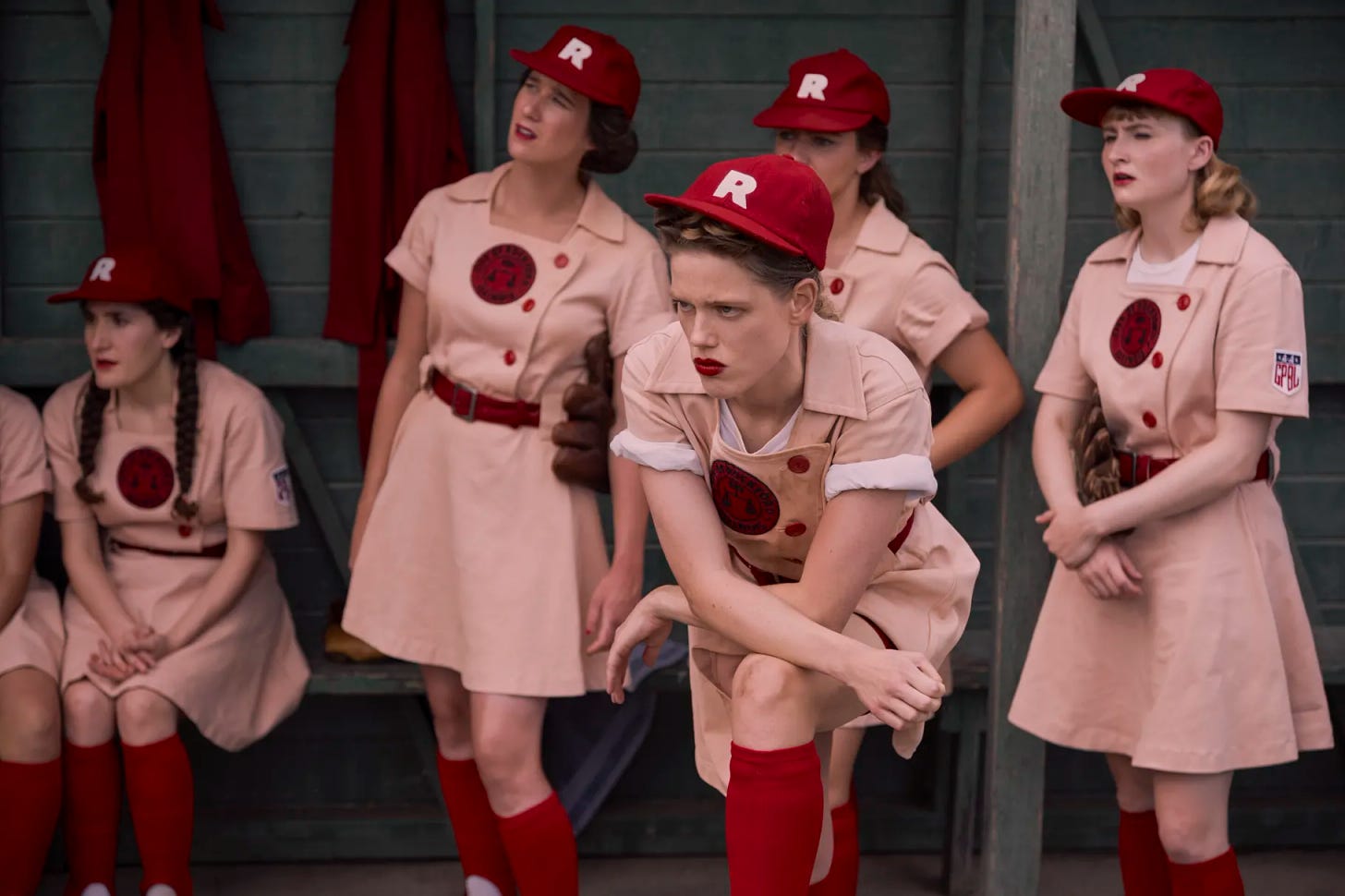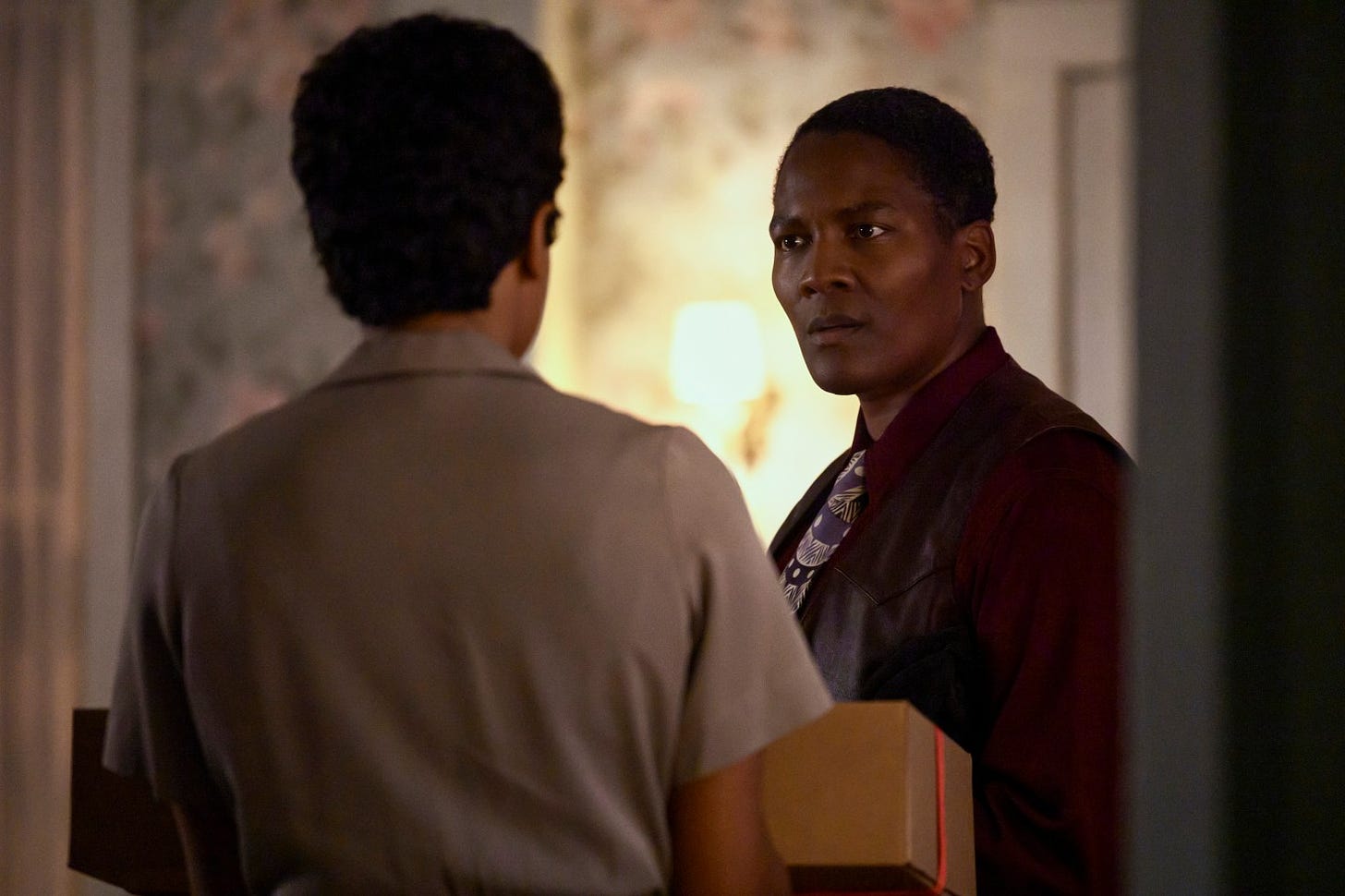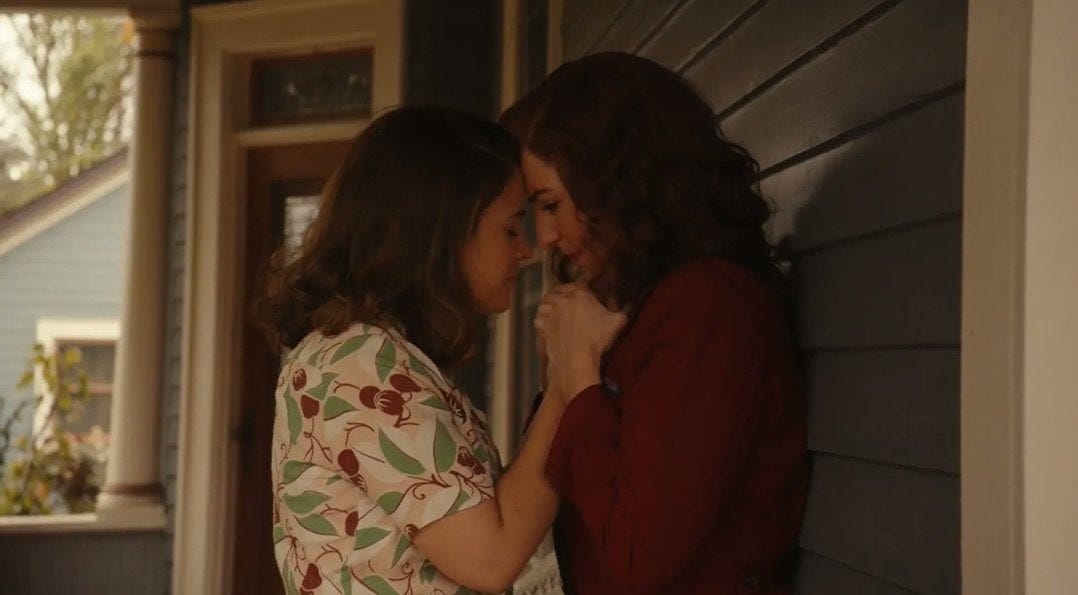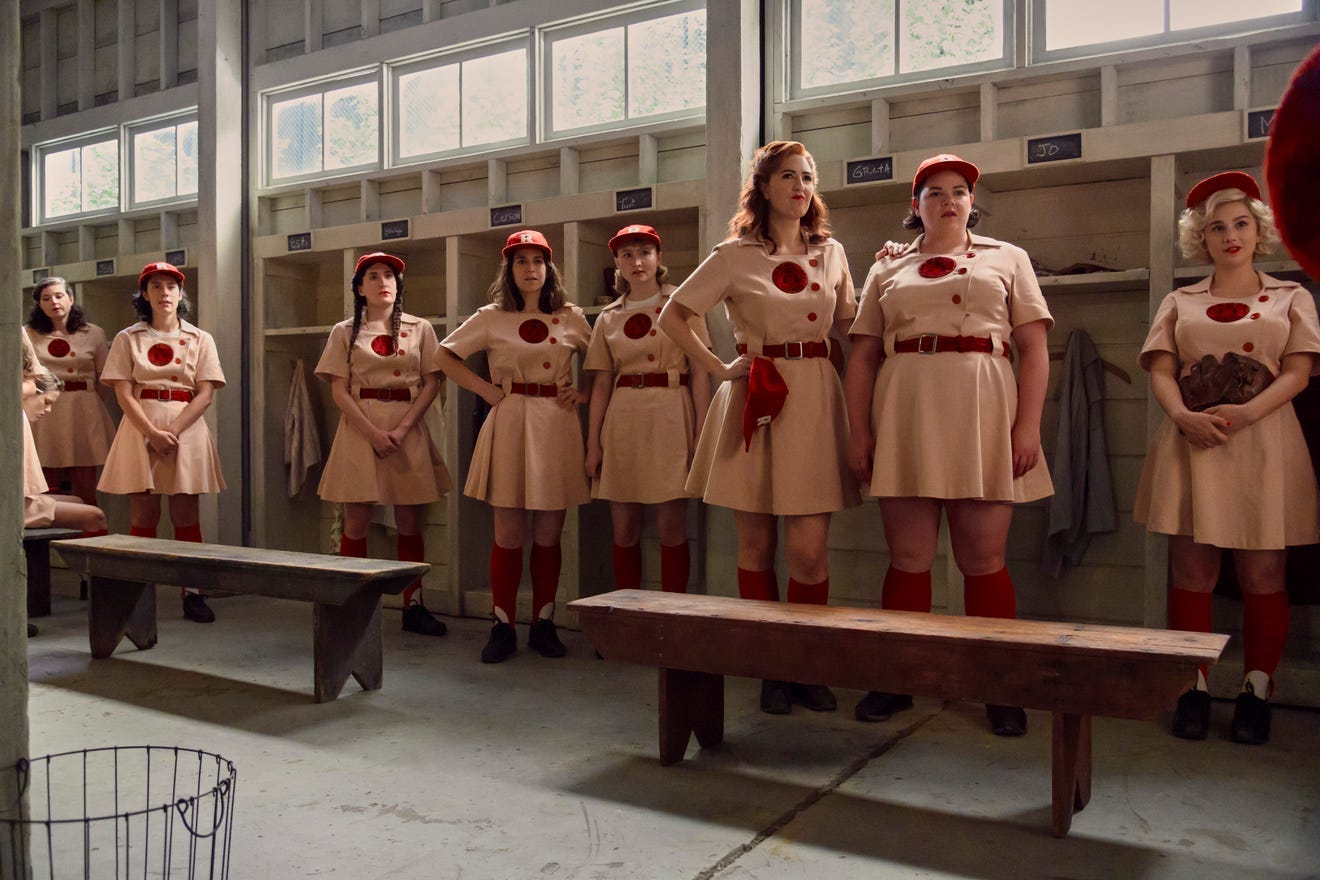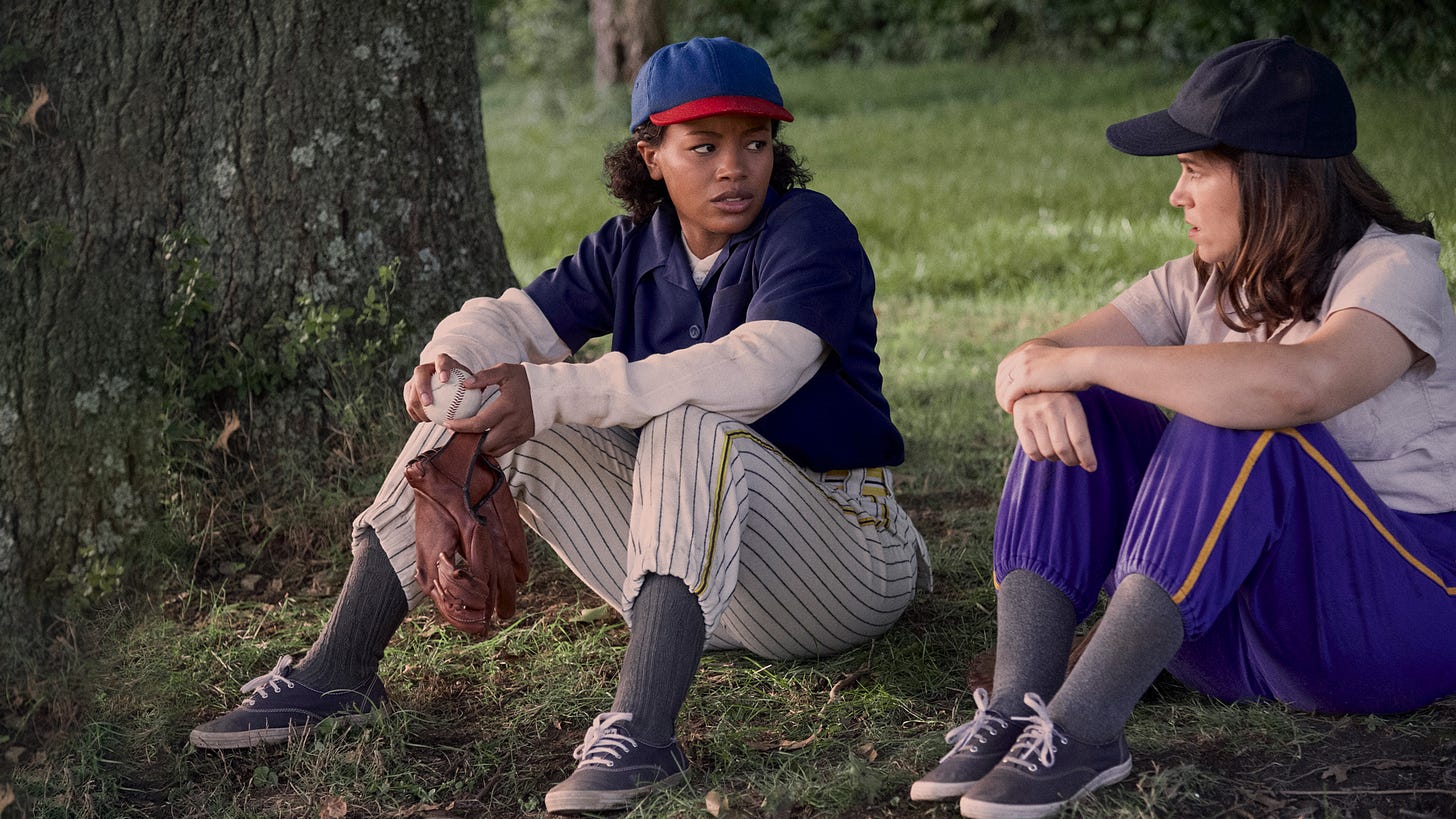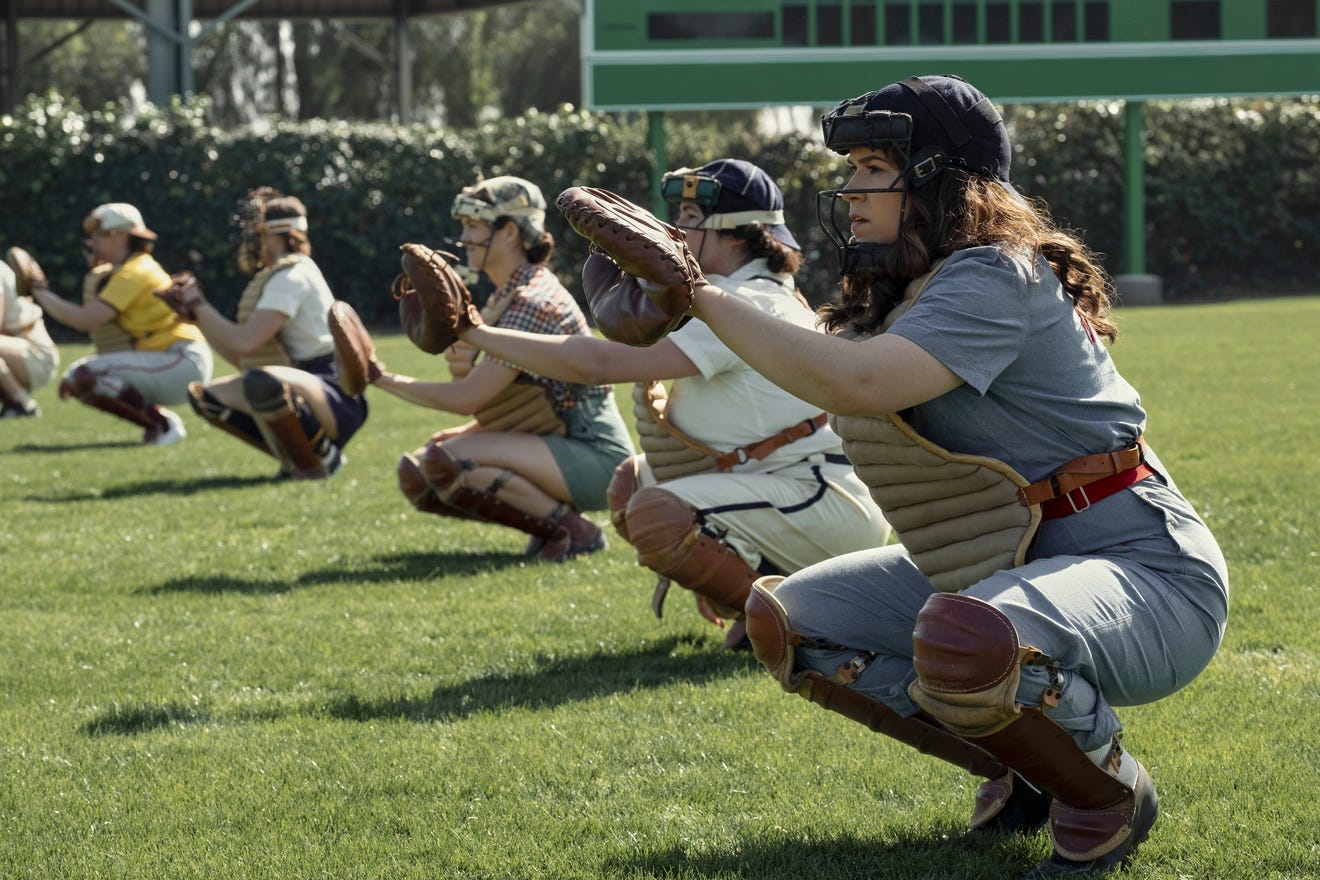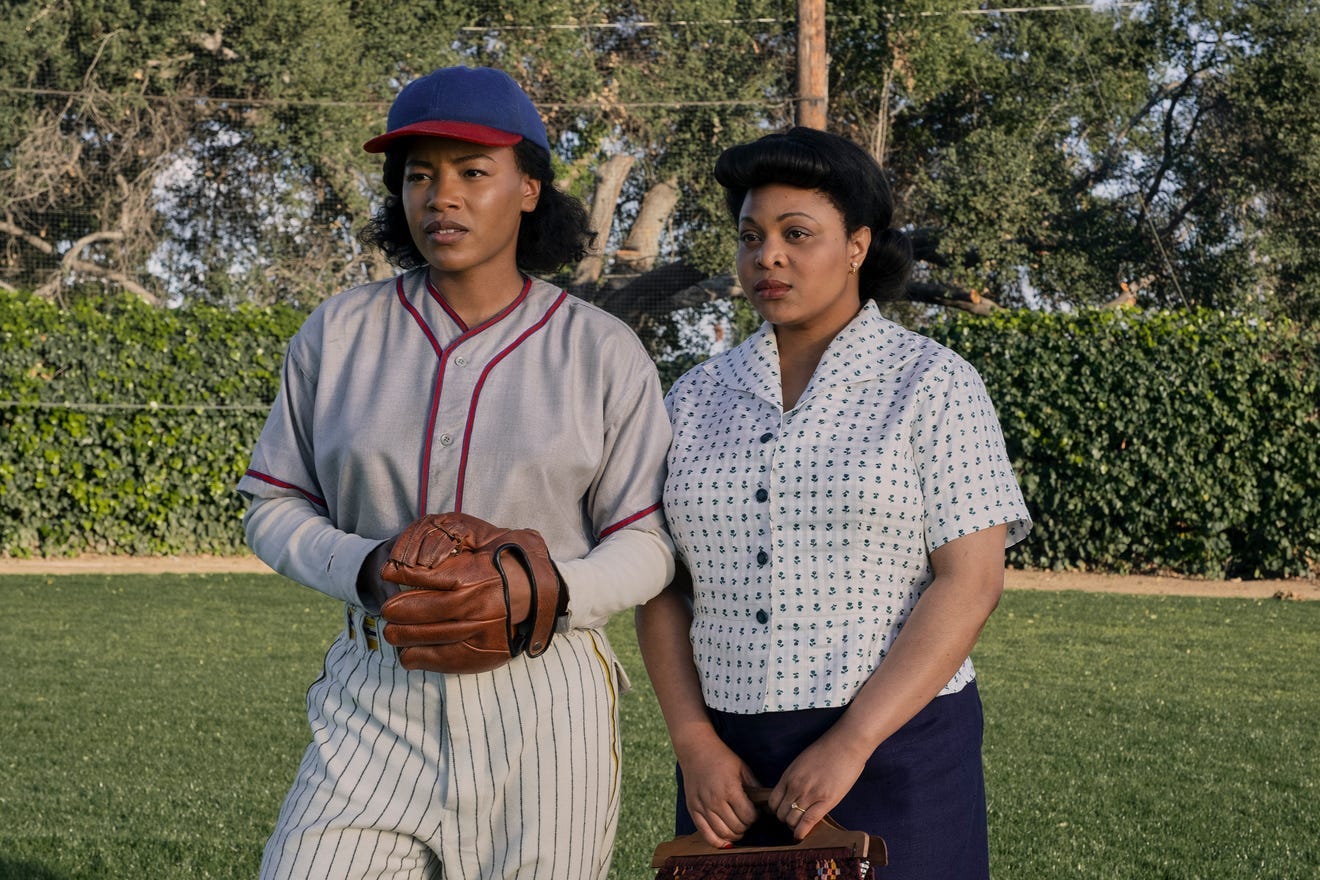Implicit Queerphobia and How We Watch TV (Or: Why It's Okay for Them to Have a League of Their Own)
Guest contributor Tilly Bridges reflects on representation, the damage its absence can do, and the part that many alleged 'allies' may have had in the demise of a certain baseball series
Today’s edition of 5AM StoryTalk features guest contributor Tilly Bridges, who will be discussing what the recently canceled television series “A LEAGUE OF THEIR OWN” meant to her and the queer community, as well as reflecting on how the series was received outside that community. It’s a powerful piece about representation in the media, the damage its absence does to people, and the part many alleged, often well-intentioned “allies” may have in that.
Tilly is one half of a trans woman/cis woman writing team with her wife Susan. They’re currently writing for the “MONSTER HIGH” animated series, were head writers of the 2023 Nebula Awards and 2021 Hugo Awards, and write comics, games, and podcasts.
Queer representation in television is something that’s long been rarer than unicorns, especially good representation that doesn’t fall into stereotypes or outright hateful tropes. If I have to see one more show where trans women are victims, or jokes, or predators, I’m gonna pop a gasket. But all too often when we finally do get great, much-needed representation — such as the TV series “A LEAGUE OF THEIR OWN”, which I’ll be discussing here — a whole lot of cisgender heterosexual people don’t “get it.” They think it’s “bad” or “confusing” or “makes ’em feel icky.” But queer stories don’t look like cisgender heterosexual stories, nor should they.
The reason some cishet people get the willies from queer stories is a little something called implicit queerphobia. I’m talking about the ways that all of us have it ingrained into us in spite of our wishes (or knowledge), simply by being raised and existing within a system that is set up to be queerphobic.
Here’s a great example for you: picture an airline pilot in your mind.
What’s the first thing you thought of?
Was it…a non-disabled cisgender heterosexual white man? Likely, it was. Even if you detest bigotry and do your best to promote equality and be an ally, that probably still happened. Especially if you're a cishet white person.
Why?
Because our society has taught you that’s what pilots look like. Even though we consciously know they can be women or trans or disabled or Black or Mexican or gay or bi - or any combo of those. Even if you believe to your core all those people can be pilots and should be if they want to be.
Those are implicit biases.
We have a whole host of them that seep into our subconscious minds without our permission, and we have to work to stop them and change our way of thinking. Implicit racism, sexism, ableism, and more are very real.
And here’s a prime example of the damage it can do…
The TV show “A LEAGUE OF THEIR OWN ” premiered on Amazon Prime in August 2022. It told a fictionalized version of the All-American Girls Professional Baseball League that existed from 1943 to 1954. There was, of course, the movie of the same name released in 1992, but the big difference is the series came out thirty years later and queer acceptance is somewhat better now — though really rough on the trans end — and so the series tackled things the movie barely touched on or outright avoided because it wasn’t able to address them. Very specifically, it deals with queerness and racism. A lot of the characters are gay or bi. There’s even an actual trans character who is confronted by a loved one who calls him a “freak” – a scene that wounded my heart, but as part of the story, made sense and worked in the big picture.
As “A LEAGUE OF THEIR OWN” was coming out, before I’d even seen half of the episodes, I saw multiple cishet people — some who I know to be or who want to be real allies — wondering why “it had to be so queer” and that it was “forced queerness”. Utter nonsense. How many intrinsically queer shows can you name? Can you get to ten? Can you even get to five?
We almost never get represented in the media, and so often when we do, it’s still harmful stereotypes or, worse, perpetuates tropes that enable the violence we face - like cis men playing trans women perpetuates the lie that we’re just “men in dresses”.
Complaints about “A LEAGUE OF THEIR OWN’s” queerness completely erase the fact that the show was created by two queer people and told the story of this largely queer sports league that couldn’t be told before.
“This show is really the story of a generation of women who wanted to play baseball and a lot of those women were queer,” series co-creator Will Graham has said. “I think queer audiences are very used to people sort of teasing them and giving some crumbs and giving a little, and this is a show that is trying to authentically tell those stories very wholly.”
This is a queer story being told by us, and it causes some kind of disconnect in certain folks. Why is it bad that it’s “so queer?” Why does it feel “forced” simply because it does not center you and is not about you?
To be clear, there are still cisgender heterosexual characters in the show. Many of them.
Is it about managing your expectations? If so, why do you expect things will be cishet and center you? Think about why that might be, and what that says about our society - but also what that’s saying about queer people.
Do you only expect to see us centered in shows that shout this is for the queers? If so, why do you think that is? Why can’t a show for everyone also be for queer people? Are we not also part of “everyone?”
Also, how many shows that shout this is for the queers did you watch anyway?
“A LEAGUE OF THEIR OWN”?
Oh, do you not watch them? Why not? Some might not be for you, but how do you know if you don’t try? I can tell you, a lesbian baseball show is 100% for me.
Does it make you uncomfortable when something largely ignores you? Do you understand how queer people feel for 99% of all shows? Why is it okay for us to feel that way, but not you? Do you see the danger in implying we should only exist siloed off in explicitly queer stories?
We deserve to see ourselves in sci-fi and horror and fantasy and relationship drama and family drama and kids’ entertainment and everything else.
One complaint I kept hearing was there’s no “story reason” for the characters to be queer, or for the one trans character to be trans, but…
How many things have you seen where there’s a “story reason” to be cisgender or heterosexual? Is it zero? Of course, it is.
Cisgender heterosexual characters are allowed to just exist in stories and be people whose entire existence doesn’t need to be justified by the story. But queer people show up and some folks shout, “Why must they be there?”
Do you understand what this does to queer people, to hear this and think we’re not allowed to exist in a story unless there’s a specific reason for it? Which means we should just disappear and not be in the media?
Never mind that the specific reason in “A LEAGUE OF THEIR OWN” is the real players were largely queer. Have you seen any pro women athletes? This is not news. The story’s being told by queer people about queer history and even still, some cishet folks think it just shouldn’t be a thing because it doesn’t cater to them. One episode was even about the heteronormativity that the women players were forced into by the league. They had to wear makeup, couldn’t wear pants, and had to play in skirts. There’s a whole episode about police raids on what little queer culture there was. It’s very clearly queer all the way through.
But just how queer was “A LEAGUE OF THEIR OWN” anyway?
Of the main cast or recurring characters, by my count, there were nine queer characters.
How many cishet main or recurring characters were there?
Eleven.
Queer people in the show, a mix of all cis/trans/nonbinary people and sexualities, are not even half of the characters of one specific identity: cisgender heterosexual. I will likely never in my life see a single show or movie that’s even close to fifty percent trans people, let alone the entire cast. But nearly everything is entirely cisgender. Why? There’s no such thing as a “default” human. Other people exist. But our media doesn’t often represent that.
Can you even imagine a world where 99% of shows were entirely queer except for an occasional cishet person who was the butt of a joke or the victim of violence? Can you imagine a world where all media is like that? How would it make you feel? Now imagine you finally get a show or two about you and your story, and you’re still not even more than half the cast, but all the queer people wonder why you have to “force your cishet-ness into things.”
And I would like to point out how there are not many queer people in shows mostly full of cishet characters. Certainly, there are no shows I can think of with mainly cishet characters where queer people make up almost half the cast, let alone outnumber them.
The result is that these cishet people who I like, who want to be allies, are out here forcing queer people like me to justify a queer show’s existence because they can’t see the implicit biases that are so very ingrained within them.
When we can’t see ourselves in media, we feel like we don’t belong and aren’t wanted. It crushes us.
Crushes.
But when we do see ourselves, it’s life-changing.
Dr. Mae Jemison was inspired to become an astronaut by seeing Nichelle Nichols as Uhura in “STAR TREK”.1
I wrote an entire book2 about the trans allegories of THE MATRIX franchise, which is so very intrinsically trans and means so very much to the trans community because they speak to us and about us in a way nothing else does. It’s almost literally all we have. Those movies have changed so many lives, for the better.
“A LEAGUE OF THEIR OWN” even made one of the original league members – Maybelle Blair – finally feel she could come out.3 She kept her truth hidden for ninety-five years because of the queerphobia in society.
Series co-creator Abbi Jacobson said of Blair, “She came out at 95. It’s never too late to do that. It made me feel so proud of the show that we’re telling these stories — that maybe she wouldn’t have had to wait till she was 95 if more stories had been told.”
How much clearer can the importance of representation be?
Consider what Will Graham has said about the original film A LEAGUE OF THEIR OWN:
“I grew up with the movie. I was a little broken, queer kid who didn’t even know that word, and was playing Little League baseball, and my coach was like, ‘Why is this kid crying all the time?’ And it’s because I felt like I was undercover as a boy. The movie, in its subtext sort of spoke to me, in part because there were no films or TV shows around me that had real, explicitly queer stories.”
This show meant so much to the queer community, but it’s also meant so much to Black queer folks.4 It’s also brought such amazing history to light.5 Spend a minute searching the #LeagueOfTheirOwn and #ALOTO hashtags and really understand the impact this one show has had on so many queer people.
All I have to say to Graham, Jacobsen, the writers, cast, and crew: thank you for giving us something so wonderful that means so much to so many, and for saying trans people exist in that world.
I’m so sad we’ll never get any more of it because Amazon Prime canceled it before production began on Season 2.
“A LEAGUE OF THEIR OWN’s” story is my story. I was a kid who loved baseball, but didn’t understand why I wasn’t allowed to play with the girls. Why I felt different.
I never even heard the word “transgender” until I was an adult. I didn’t know it was a thing someone could be. And here’s a show that directly spoke to me, and so many others, about our experiences and our feelings and our lives.
I will likely never see another lesbian baseball show like it in my lifetime, and I’ll never get the chance to write for it, and so many queer girls and trans kids won’t get to see more of this show and know that they matter, their stories matter, and they’re beautiful just the way they are.
And like so many queer shows, it was canceled and pulled out from under us. Our stories are removed from history (both in the form of this show, and the knowledge it increased about the real queer players it was based on), removed from media, and it leaves our hearts cold and dark and feeling like there’s no place for us. No place for me.
I get it, implicit biases are hard to wake up from. But if you don’t try, if you don’t do the work to celebrate marginalized voices telling our own stories, if you wonder why our stories don’t center you — even when you’re still heavily featured — you’re not helping.
We all deserve to see ourselves in media. Queer people deserve to be the ones telling our stories. And you need to be okay with them not being about you. Please help us get there.
You can find Tilly Bridges on Twitter and learn more about her here. She writes weekly essays and a podcast about existing as trans and how trans people are represented in media, all of which are free and archived here. Her book BEGIN TRANSMISSION: THE TRANS ALLEGORIES OF THE MATRIX is out now.
If this article added anything to your life but you’re not up for a paid subscription, please consider buying me a “coffee” so I can keep as much of this newsletter free as possible for the dreamers who couldn’t afford it otherwise.
My debut novel PSALMS FOR THE END OF THE WORLD is out now from Headline Books, Hachette Australia, and more. You can order it here wherever you are in the world:




